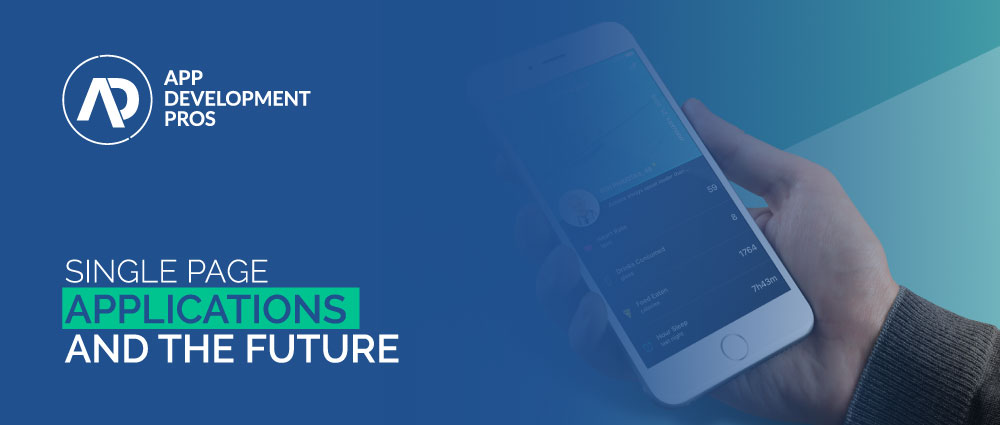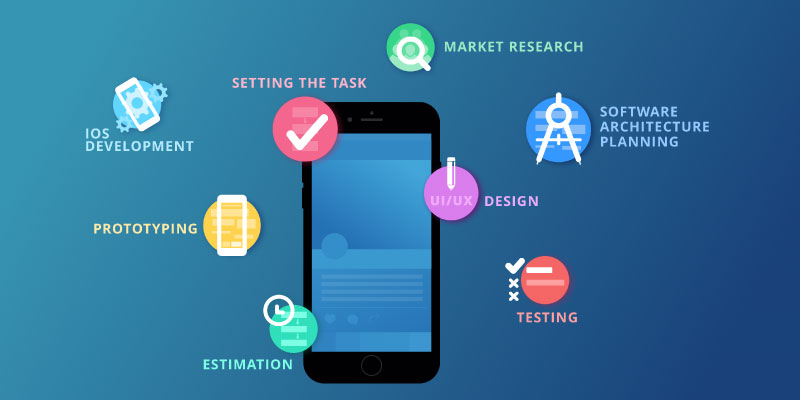Single Page Applications and the Future

March 3 , 2021 Posted by Admin
Web apps are everywhere now. Everybody under the sun has created one or is working on it. And it is no big mystery why. An app for your business can reach the customer better when needed. It also provides customers with availability and a permanent place on their phones. This allows your app to be front and center of the customer’s routine.
Nowadays, everyone has their app, from fast-food joints like McDonald’s and cafés like Starbucks to fashion brands like Louis Vuitton and sports apparel like Adidas. And, of course, there are the usual suspects like Amazon, eBay, Ubereats, and DoorDash. And let’s not forget who we cannot live without – the social media: Facebook, Instagram, YouTube, and Twitter.
One example of a popular technology right now in development is Single Page App Development.
Single-Page?

A single-page application could be a mobile app website, or both, which can be accessed and used by the user without opening and loading entire web pages like on a browser. Still, it just dynamically rewrites data for the current web page with relevant data.
So, a single-page application is just a website with one single page of HTML. To move around or go to different website sections, the user has to scroll up and down or jump to that section with a link to that section design inserted near the top or on the side as a navigation tool.
This approach in digital design allows the content on every page being opened to be created dynamically, with JavaScript handling the current page’s DOM elements. Unlike the approach of loading new HTML pages every time, the user clicks on a different page or in the conventional sense. This does away with the method of what is called indexing.
How Does it Work?

A single-page app works in the browser’s background that the user is working on; hence, it works in the background to deliver the content of the page on the same layout as the homepage. This does not require every page to load up separately with a click, eliminating that tedious wait time a user stares at a blank screen. Also, it allows the user to go back and forth from one section to another without losing information.
For example, in the case of simple data entry like a contact form, the user would no longer have to refill it in case they went to a different page and came back. We all remember those forms, particularly when signing up for an email account. In this case, you can go forward and then come back losing any data you entered.
The framework and general layout stay the same throughout the website or app, with only the user-relevant content and interactive links changing with the page, without reloading what is constant throughout the forum. This means for the user, and it looks like a single page changing on command, hence aptly named – Single Page.
Single Page Giants

Single-page apps are now widely known for their characteristics of being a simple and efficient marketing tool as well as a marketplace access point. To look to the future companies opt for single-page app development services for their customers’ go-to experience to simplify matters at the users’ end.
Single-page applications are already being used by quite a few big names in the game since they are very effective in providing the user with a smooth and engaging experience.
Companies such as Google Maps, Gmail, Netflix, Airbnb, PayPal, GitHub, and Pinterest are renowned names that already provide their services on a single-page app to create a more accessible and fluid user experience. And since it works in the browser’s background, one of the most useful examples is Facebook.
One of the first things brands do, especially for huge corporations, is to get the advice of a single-page application development company to push the branding with the apps onto the phones and computer screens of the consumer.
Conclusions
For dynamic platforms, single-page applications are the optimal choice since they have a minimal amount of data to manipulate and for the user to handle. The data required for the app to work with is just the right fit to be handled as such, as opposed to the hefty content management done on an otherwise conventional website.
In the grand scheme of things, the future of mobile apps will be further through single-page apps, with the foundation of web development getting renovated in that spirit.
Also Read: Introducing Mern Stack?
Services

We at App Development Pros, a renowned mobile app development company, are like superheroes of the smartphone app world! We provide digital opportunities in the mobile app design form and help you turn fantastic ideas into powerful mobile apps for your business needs. Our top-notch app development services build the perfect mobile applications for your needs by working closely with you, making us one of the USA's best mobile app development companies.
2025 (c) App Development Pros - Privacy Policy - All Rights Reserved



































Leave a Reply